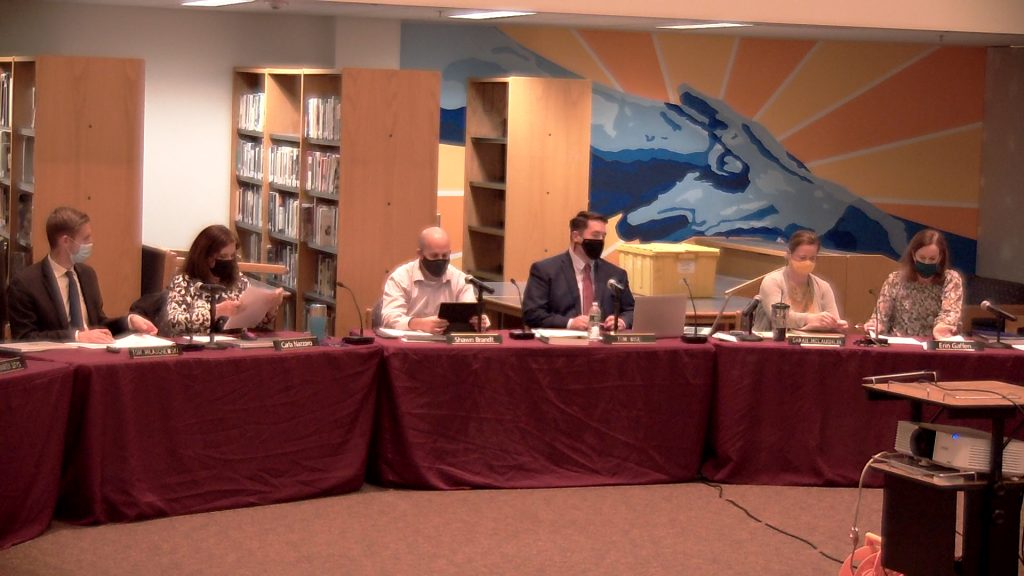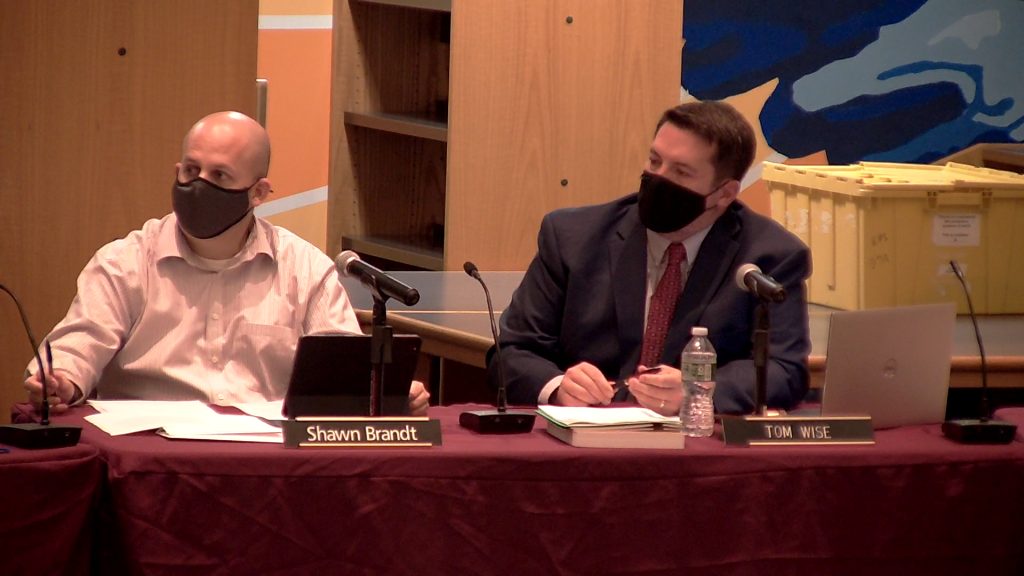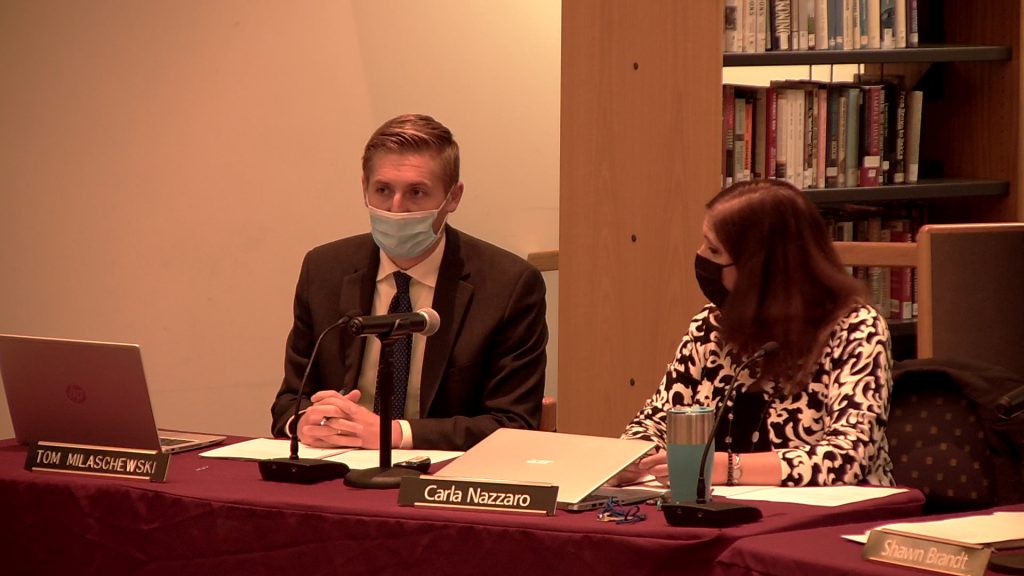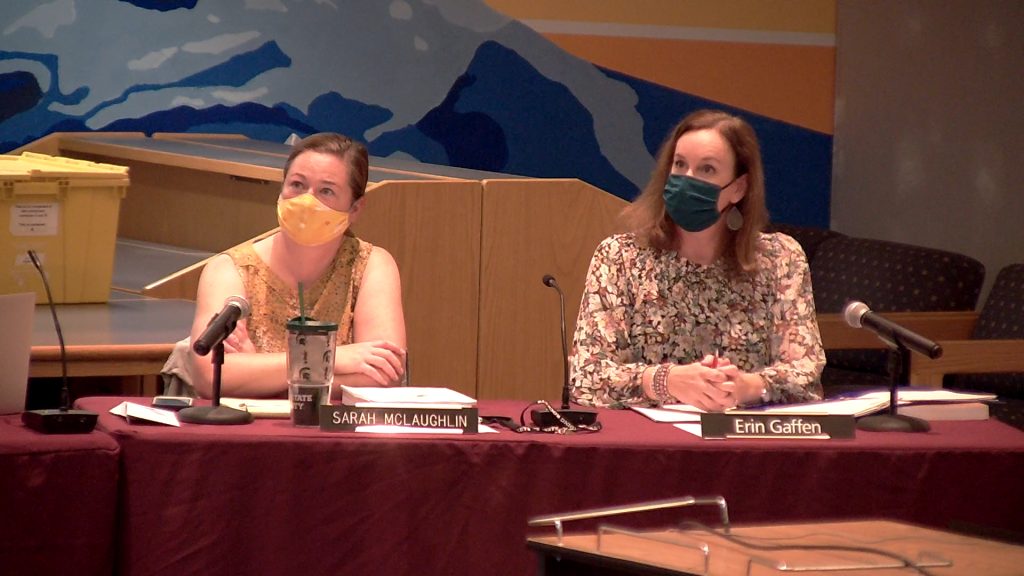Reading, MA — School Committee chair Thomas Wise presented the School Committee with a proposal from the Special Education Parents Advisory Committee (SEPAC) that the School Committee establish a “Reading in Reading Advisory Committee.” This group would seek to enhance literacy instruction by studying the issues involved, then offer suggestions to the administration and School Committee. Wise noted that as the SEPAC looked at the issue, it determined that literacy issues are “not just a Special Education topic.

The plan outlined by Wise would populate the group with parents, educators, administrators, and members of the School Committee. Wise continued by highlighting the collaborative nature of the group, noting that the proposed model would allow members of the staff to be official members of the committee. Assistant Superintendent of Student Services Jennifer Stys agreed, “[We would be] making sure we have all the experts at the table.”
School Committee member Shawn Brandt, while expressing complete agreement with the goals of the group, shared concerns about School Committee members influencing areas beyond the purview of the School Committee, such as choosing specific curriculums.

“I appreciate the goals, but this is the wrong mechanism to do it,” Brandt added.
Brandt continued, suggesting the establishment of a committee with the same goals that would serve as an advisory committee to the administration, not the School Committee. School Committee member Erin Gaffen shared similar concerns, stating that the proposal raised “red flags” for her, especially with the inclusion of School Committee members in the group. “It feels like the ultimate goal is curriculum,” Gaffen opined.
School Committee member Chuck Robinson, who was unable to attend the meeting, submitted a letter to the committee, read by member Carla Nazzaro. The letter reflected some of the same issues as those of Brandt and Gaffen.

Nazzaro stated that establishing the new advisory committee seems like a natural progression from work already done by the SEPAC and suggested that the model be piloted for a year and then reviewed. Member Sarah McLaughlin noted that several other school committees in the state had established advisory committees on various subjects.
Unable to come to a resolution, the School Committee voted 4-1 to table the issue. Brandt was the only dissenting vote.
The committee reviewed Superintendent Thomas Milaschewski’s vision and strategic action steps, following up on a presentation from the previous committee meeting. Milaschewski outlined action steps for four strategies: developing operational systems, grounding in best practices for adopting the “acceleration roadmap” as recommended by the Department of Elementary and Secondary Education (DESE), learning and marketing the district, and Human Resources systems and practices.

This led to a conversation about Milaschewski’s official goals for the coming year. Milaschewski presented four overarching goals, three recommended by DESE for new superintendents: effective entry and direction setting, maintaining momentum, and active involvement in the new superintendent induction program. Milaschewski added the goal of coaching, developing, and supporting principals. He referenced research that suggests that supporting principals is “the best lever to move student outcomes.”
The school committee reviewed statistics regarding COVID-19 in the schools. There have been thirty-nine cases in the schools since the beginning of the school year. Of the 138 close contacts cases, all participated in the test and stay program, and all tested negative and therefore were able to remain in school. Gaffen commented that she is “grateful that we have been doing test and stay from the beginning.” Wise shared that DESE had extended the mask mandate in schools through November 1.
By a vote of 5-0, the School Committee approved the collective bargaining agreement with cafeteria employees. Also, by a 5-0 vote, it declared some extra equipment as surplus equipment.
Director of Finance Susan Bottan reported that $831,241 had been returned to the town’s free cash reserves at the end of Fiscal Year 2021. Erin Gaffen expressed frustration over the size of the transfer, “How could we not spend over $800,000?”, Gaffen stated. Wise suggested the aggressive pursuit of grants and other funding allowed the local funds to remain in local control. He also indicated that the projected transfer had been in the $400,000 range. The committee voted 5-0 to do two small transfers between budget cost centers.
The committee also reviewed its student records policy and public right to know policy. Both first readings were approved by votes of 5-0.
The School Committee adjourned at 10:00 pm.
